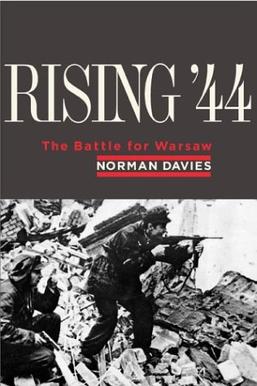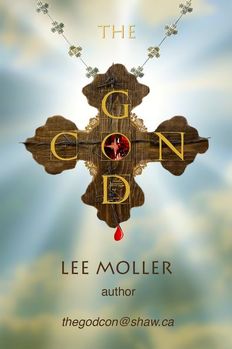 You may be familiar with the Warsaw ghetto uprising. The ghetto uprising took place in 1943. It was the story of the Jews fighting back rather than allowing themselves to be slaughtered. This is not that story. The Battle for Warsaw was the attempt by the Poles in 1944 to try to retake their country. The Russians were to the east, and the Germans were retreating to the west. The time seemed ripe. One can imagine the best outcome: The Varsovians (the correct term for a Warsaw-dweller) rise up in Warsaw; Russia advances on Warsaw (the enemy of my enemy is my friend); Together, they drive the Germans out; Russia leaves; and Poland is restored! That did not happen. Russia was initially happy to carve up Poland with Germany when the war began. This was known as The Pact of Steel. Stalin wanted all that he could take. Even after reading this engrossing account of the battle, and its surrounding politics, I still could see no way that the Poles would get what they wanted (a stable border; and self governance… the greedy bastards!). But that could never be. They were between the proverbial rock and a hard place. Germany was defeated, and Stalin knew that his army from the east would take most of the countries between Russia and Germany in order to get to Germany. And he had no plans of giving any of them back. Having said that, the Poles still got screwed. Russia deliberately laid off Warsaw until Germany had squashed the uprising and razed the city to the ground. Both England and Russia knew the truth but were never prepared to speak it. Instead, they played footsie with the issues, placating the Poles until even they realized the western allies could not intervene. But the big villain in all of it was Stalin. One can say a lot of bad things about Britain, but they did try. Spy missions, air drops, and so on were executed, usually by Polish soldiers and airmen working out of England. Russia refused to help. They even denied the allied planes (their allies, the ones shipping them arms) the right to land on Soviet airbases after making a long flight to Poland. This dramatically hobbled the western allies in trying to support Poland. The Battle for Warsaw began on 1 August 1944, lasted 63 days, and ended Oct 2. The Yalta conference had, by then, already given Poland away. Here is an example of the kind of bullshit politics that took place then (and now, if we are honest): The Russians essentially argued that they had a right to reset the borders of Poland to the those before the war. Makes sense, right? Except, as far as Stalin was concerned, the war did not begin until Germany attacked Russia. By then, Russia had already swiped half of the country and they meant to keep it. It is hard for a Canadian to appreciate the animus that existed in Europe at the time. Poles, Jews, Christians, Slavs, Croats, Germans… they all had long standing grudges. And it was quite possible for one to belong to two groups at once (a Jewish Pole might identify with being a Jew or a Pole or both). Anti-Semitism was everywhere. Borders of countries were fluid. Large movements of people were not uncommon. The Great War did not make any of this better. But one cannot overstate the hate the Germans had for the Poles, and the Poles reciprocated. Nor can one overstate the bravery and determination of the Poles. You would be willing to fight to, if you watched the enemy walk into a neighborhood and shoot every last person dead just to make a point. Denmark, which also borders Germany, was treated with kid gloves by comparison, in part because the Germans saw the Danes as fellow Arian supermen. I should also note that Churchill himself was a dealing from the bottom of the deck when it came to Poland. He conned the Polish government in exile. In his defense, as I implied earlier, I suspect the basic outcome would have been the same whether Churchill was honest or not. The subject is of interest to me, so I read this rather long book with interest. I stopped after the war ended (somewhere around page 450) as I am not all that interested in the cold war politics that followed. This work is spiced up by asides of personal heroics, usually taken from diaries and such. It describes all the major Polish players in the Warsaw uprising, few of whom survived the war. Many died in Russian gulags. Oddly, the Germans were a beneficiary of the uprising. It gave them 5 months of time to destroy Warsaw (which they saw as a mini-final-solution) and to assemble the Reich's defenses. The book's font is small and the pages dense, so this is a long read for anyone.
0 Comments
|
AuthorLee Moller is a life-long skeptic and atheist and the author of The God Con. Archives
May 2024
Categories
All
|

 RSS Feed
RSS Feed